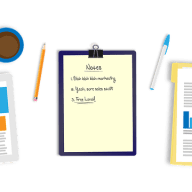Topics Syllabus Covered in Advanced English Speaking Activities
Developing effective speaking skills is crucial for advanced English proficiency. Here are some speaking activities that can help in improving speaking skills and also these will be the part of Advance English Speaking course modules.
1. Debate and Discussion
Debate and discussion are activities that involve expressing opinions and ideas on a particular topic. It can help improve critical thinking skills and develop the ability to express oneself clearly and persuasively.
In a debate, participants are assigned different positions and must argue their case for or against a particular topic. In a discussion, participants share their thoughts and ideas on a topic in a more informal setting.
Both activities can be beneficial for advanced learners as they require the use of complex language structures and vocabulary.
2. Public Speaking
Public speaking involves speaking in front of a large audience. It is a challenging activity that requires confidence, clarity, and organization. Public speaking activities can include giving presentations, speeches, and lectures.
Advanced learners can benefit from public speaking activities as they can improve confidence, fluency, and pronunciation. They also provide opportunities to practice using complex language structures and vocabulary.
3. Pronunciation
Pronunciation activities involve practicing the correct pronunciation of English sounds and words. They can help in improving clarity and intelligibility when speaking English.
For example, students can practice using minimal pairs, which are pairs of words that differ by only one sound. Examples include “sheep” and “ship,” “bit” and “beat,” and “sink” and “think.” These activities can help in improving the ability to distinguish between similar sounds and produce them correctly.
4. Role-plays
Role-play activities involve acting out a specific scenario, often involving different roles or characters. They can help in improving communication and language skills in real-life situations.
For example, students can practice role-plays such as ordering food in a restaurant, making a complaint at a hotel, or negotiating a business deal. These activities can help in developing effective communication skills in various social and professional settings.
5. Listening and Responding
Listening and responding activities involve actively listening to others and responding appropriately. They can help in improving active listening skills and developing effective communication skills.
For example, students can practice listening to audio recordings, watching videos, or engaging in conversation with others. These activities can help in developing skills such as asking questions, clarifying information, and providing feedback.
6. Storytelling
Storytelling activities involve telling a story or sharing personal experiences. They can help in improving fluency, organization, and creativity skills.
For example, students can practice telling stories such as personal anecdotes, myths and legends, or famous stories from literature. These activities can help in developing effective communication skills and engaging with the audience.
7. Vocabulary Building
Vocabulary building activities involve learning and practicing new words and phrases. They can help in improving communication and comprehension skills.
For example, students can practice learning new words through activities such as reading, word games, and vocabulary exercises. These activities can help in improving the ability to use and understand a wide range of vocabulary.
8. Cultural Awareness
Cultural awareness activities involve learning about different cultures and customs. They can help in improving cross-cultural communication and understanding.
For example, students can learn about different cultural practices such as greeting customs, table manners, or religious celebrations. These activities can help in developing respect and understanding for different cultures and improve communication skills in multicultural settings.







Leave a comment